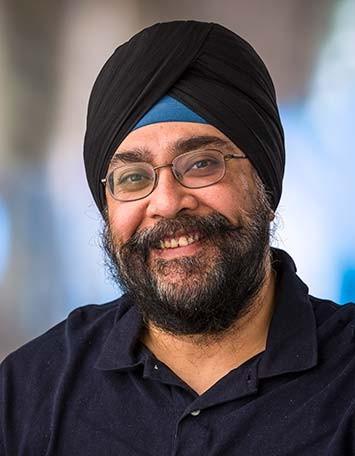Date:
Location:
 Harmit Malik
Harmit Malik
Principal Investigator, Fred Hutchinson Cancer Research Center
Investigator, Howard Hughes Medical Institute
Professor, University of Washington
Genetic Conflicts During Meiosis Shape Centromeres and Species
Abstract: Prof. Malik studies the causes and consequences of genetic conflicts that take place between different genomes (e.g., host-virus interactions) or between components of the same genome (e.g., chromosomal competition at centromeric regions). He is interested in understanding these "molecular arms races" and how they drive recurrent genetic innovation, from the perspective of both evolutionary biology and human disease. The Malik lab studies a variety of ‘arms-races’ which allows him to bring an explicitly broad evolutionary perspective onto the study of rapid evolution in genes involved in essential cellular processes such as chromosome segregation. Based on the unexpected discovery of rapid evolution of centromeric proteins in plants and animals, he and his collaborators first proposed the ‘centromere-drive’ model, in which centromeric DNA element act as selfish genetic elements to exploit asymmetries in female meiosis (in which only one of four meiotic products is chosen) for their own transmission, even at great cost to host fitness. Several aspects of the original ‘centromere-drive’ have now been elegantly demonstrated by other labs, but the question of what drives rapid evolution of centromeric proteins remains unsolved. Using a gene-swap strategy in Drosophila, in which centromeric histones are reverted to an ancestral state, his lab has pioneered a novel strategy to study the causes and consequences of this rapid evolution in vivo. His lab has also shown evidence for dramatic turnover in centromeric proteins, with evolutionarily young genes becoming essential for centromeric function whereas evolutionary old, essential genes can be rendered dispensable. Furthermore, his lab’s findings that centromeric histone duplications allow opportunities for gametic specialization further highlight the inherent differences in centromeric function in somatic versus germline cells in animals. Finally, his lab has shown how unusual genetic conflicts during meiosis may provide a basis of postzygotic reproductive isolation between recently diverged species.
Host: Haig Lab
